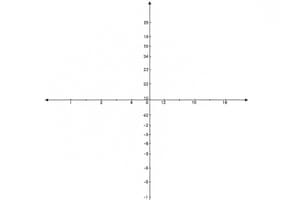Podcast
Questions and Answers
What is the first step in solving a linear inequality?
What is the first step in solving a linear inequality?
- Determine the solution set
- Find the intersection points
- Identify the regions on a plane
- Graph the inequality (correct)
How are intersection points used in solving linear inequalities?
How are intersection points used in solving linear inequalities?
- To shade the inequality region
- To find where the graph lies above the x-axis
- To identify solutions that satisfy the inequality (correct)
- To determine intervals of the solution set
In linear inequalities, what does shading below the line indicate?
In linear inequalities, what does shading below the line indicate?
- Positive coefficient before the inequality symbol
- Intersection points
- Solution set intervals
- Negative coefficient before the inequality symbol (correct)
How do linear inequalities help in solving real-life problems?
How do linear inequalities help in solving real-life problems?
What role do linear inequalities play in word problems?
What role do linear inequalities play in word problems?
Why is finding the solution set important in linear inequalities?
Why is finding the solution set important in linear inequalities?
If a restaurant sells pizza pies for $8 per pie and wants to spend at most $200 for the pizzas, what is the maximum number of pies they can buy?
If a restaurant sells pizza pies for $8 per pie and wants to spend at most $200 for the pizzas, what is the maximum number of pies they can buy?
In the ice cream store example, if the combined sales were $250 and they sold 4 times as much chocolate as vanilla, what is the total sales of vanilla ice cream?
In the ice cream store example, if the combined sales were $250 and they sold 4 times as much chocolate as vanilla, what is the total sales of vanilla ice cream?
For the transportation company transporting ball bearings, if they transport 150 miles, what would be their cost?
For the transportation company transporting ball bearings, if they transport 150 miles, what would be their cost?
If the transportation company transports 80 miles, what will be their cost?
If the transportation company transports 80 miles, what will be their cost?
If an ice cream store sells 5 times as much vanilla as chocolate and their total combined sales were $300, how much did they sell of each flavor?
If an ice cream store sells 5 times as much vanilla as chocolate and their total combined sales were $300, how much did they sell of each flavor?
Study Notes
Linear Inequalities
Linear inequalities are mathematical statements involving linear expressions, which consist of constants and variables raised to the first power only. They are used to describe relationships between quantities and can help us solve various types of real-life problems. In this article, we will explore how to solve linear inequalities and discuss several examples of problem-solving scenarios that involve these equations.
Solving Linear Inequalities
To solve a linear inequality, follow these steps:
-
Graph the inequality: Plot the graph of the given equation, indicating the direction of the inequality symbol. This is done by shading the region below or above the line depending on whether the sign of the coefficient before the inequality symbol is positive or negative.
-
Find the intersection points: Identify any intersections of the lines representing the two polynomials in the inequality. These will give you two solutions that satisfy the inequality.
-
Determine the solution set: Determine the intervals where the graphed inequality lies entirely above the x-axis (for one-variable inequalities) or in the upper half of the plane (for two-variable inequalities).
Word Problems with Inequalities
Linear inequalities can be applied to various real-life situations. Here are some examples of word problems that can be solved using linear inequalities:
Example 1: A restaurant sells pizza pies for $x per pie. If they want to spend at most $100 for the pizzas, what is the maximum number of pies they can buy?
Example 2: An ice cream store has two flavors of ice cream - chocolate and vanilla. On a certain day, their combined sales were $180. If they sold 3 times as much chocolate as vanilla, how much did they sell of each flavor?
Example 3: A transportation company transports ball bearings at a cost of $0.05 per mile for the first 100 miles, and $0.20 per mile for miles over 100. If they transport 100 miles, what is their cost?
These are just a few examples of how linear inequalities can be used to solve real-world problems. By understanding the fundamentals of solving inequalities and applying them to relevant scenarios, you can develop valuable problem-solving skills that can benefit you in various aspects of life.
Studying That Suits You
Use AI to generate personalized quizzes and flashcards to suit your learning preferences.
Description
Explore the methods for solving linear inequalities, including graphing, finding intersection points, and determining solution sets. Learn how to apply linear inequalities to real-life word problems involving scenarios like pricing and sales.




